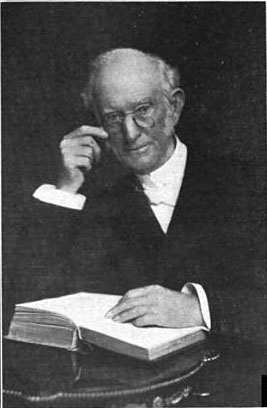|
Kumiko Haba
is a Japanese Professor of International Politics at Aoyama Gakuin University in Tokyo. Her research is International Relations, International Politics, International Sociology, Power Shift and National Anxiety, Immigrants-Refugee questions, Nationalism and Xenophobia in the European Union. She wrote a book, Division and Integration in Europe, Nationalism and Border in the Enlarged EU—Inclusion or Exclusion, Chuokoronshinsya, 2016. She is the Vice President of International Studies Association in the USA(2016–17) which is more than 7,000 members, the President of EUSA Asia Pacific Tokyo Conference in 2017, President of Japanese Association for the Improvement of Conditions of Women Scientists(JAICOWS). She is Vice Chair of Council on East Asian Community, member of Science Council of Japan, Director of the Institute for Global International Relations, European Institute at Hosei University, and Governing Council member of International Studies Association (2003-5). She is a ... [...More Info...] [...Related Items...] OR: [Wikipedia] [Google] [Baidu] |
Aoyama Gakuin University
is a private Christian university in Shibuya, Tokyo, Japan. Originally established in 1874 by missionaries from the Methodist Episcopal Church, it was reconfigured in its current form in 1949 as part of Aoyama Gakuin. Aoyama Gakuin University had its 140th anniversary in 2014 and is one of Japan's oldest higher education facilities. The university's undergraduate and graduate programs include courses on literature, law, economics, business, international politics, economics, communication, science, engineering and cultural studies. The university graduate programs include international management, law and professional accounting. Aoyama Gakuin University has participated in Hakone Ekiden, an annual university relay race between Tokyo and Hakone in Japan. Recently they won the races in 2015, 2016, 2017, 2018, 2020, and 2022. General information The main campus, located in Omotesando in central Tokyo, is complemented by the Sagamihara Campus in Kanagawa Prefecture. The lat ... [...More Info...] [...Related Items...] OR: [Wikipedia] [Google] [Baidu] |
Xenophobia
Xenophobia () is the fear or dislike of anything which is perceived as being foreign or strange. It is an expression of perceived conflict between an in-group and out-group and may manifest in suspicion by the one of the other's activities, a desire to eliminate their presence, and fear of losing national, ethnic, or racial identity.Guido Bolaffi. ''Dictionary of race, ethnicity and culture''. SAGE Publications Ltd., 2003. Pp. 332. Alternate definitions A 1997 review article on xenophobia holds that it is "an element of a political struggle about who has the right to be cared for by the state and society: a fight for the collective good of the modern state." According to Italian sociologist Guido Bolaffi, xenophobia can also be exhibited as an "''uncritical exaltation of another culture''" which is ascribed "''an unreal, stereotyped and exotic quality''". History Ancient Europe An early example of xenophobic sentiment in Western culture is the Ancient Greek denigratio ... [...More Info...] [...Related Items...] OR: [Wikipedia] [Google] [Baidu] |
Aoyama Gakuin University Faculty
may refer to: Places * Aoyama, Tokyo, Japan ** Aoyama Gakuin University, a university located in Aoyama, Tokyo ** Aoyama-itchōme Station, a railway station in Minato, Tokyo, Japan * Aoyama, Mie, formerly a town in Naga District, but now part of the city of Iga, Mie Prefecture, Japan * Aoyama Station (Iwate), a railway station located in Takizawa, Iwate, Japan People * Aoyama (surname) * Aoyama clan The was a Japanese kin group. Papinot, Jacques Edmond Joseph. (1906). ''Dictionnaire d’histoire et de géographie du Japon''; Papinot, (2003).html" ;"title="DF 6 of 80">"Aoyama," ''Nobiliare du Japon'', p. 2 [PDF 6 of 80/nowiki>">DF 6 of 80">"Ao ..., a Japanese clan which came to prominence during the Sengoku period, and is the namesake of the Aoyama neighborhood in Tokyo Other uses * Aoyama Harp, a Japanese harp manufacturer * ''Aoyama Crows'', a 2002 live album See also *Qingshan (other), places in China with the same Chinese name *Castle Peak (other), pla ... [...More Info...] [...Related Items...] OR: [Wikipedia] [Google] [Baidu] |
Japanese Political Scientists
Japanese may refer to: * Something from or related to Japan, an island country in East Asia * Japanese language, spoken mainly in Japan * Japanese people, the ethnic group that identifies with Japan through ancestry or culture ** Japanese diaspora, Japanese emigrants and their descendants around the world * Japanese citizens, nationals of Japan under Japanese nationality law ** Foreign-born Japanese, naturalized citizens of Japan * Japanese writing system, consisting of kanji and kana * Japanese cuisine, the food and food culture of Japan See also * List of Japanese people * * Japonica (other) * Japonicum * Japonicus * Japanese studies Japanese studies (Japanese: ) or Japan studies (sometimes Japanology in Europe), is a sub-field of area studies or East Asian studies involved in social sciences and humanities research on Japan. It incorporates fields such as the study of Japanese ... {{disambiguation Language and nationality disambiguation pages ... [...More Info...] [...Related Items...] OR: [Wikipedia] [Google] [Baidu] |
East Central Europe
East Central Europe is the region between Germanic, West Slavic, and Hungarian-speaking Europe and the East Slavic countries of Belarus, Russia, and Ukraine. Those lands are described as situated "between two": "between two worlds, between two stages, between two futures". In the geopolitical sense, East-Central Europe can be considered alongside Western and Eastern Europe, as one of the "Three Europes". The largest East Central Europe academic research groups tends to disinclude Russia and Germany, but appreciate their historical influences in this area. The concept differs from that of Central and Eastern Europe in that it is based on criteria whereby the states of Central and Eastern Europe belong to two different cultural and economic circles. Definitions Oskar Halecki Oskar Halecki, who distinguished four regions in Europe (Western, West Central, East Central, and Eastern Europe), defined East-Central Europe as a region from Finland to Greece, "the eastern part of Cent ... [...More Info...] [...Related Items...] OR: [Wikipedia] [Google] [Baidu] |
Kyodo
is a nonprofit cooperative news agency based in Minato, Tokyo. It was established in November 1945 and it distributes news to almost all newspapers, and radio and television networks in Japan. The newspapers using its news have about 50 million subscribers. K. K. Kyodo News is Kyodo News' business arm, established in 1972.Shrivastava, K. M. (2007). ''News agencies from pigeon to internet.'' Sterling Publishers Pvt. Ltd. p. 208. . The subdivision Kyodo News International, founded in 1982, provides over 200 reports to international news media and is located in Rockefeller Center, New York City. Their online news site is in Japanese, Chinese ( Simplified and Traditional), Korean, and English. The agency employs over 1,000 journalists and photographers, and maintains news exchange agreements with over 70 international media outlets. Satoshi Ishikawa is the news agency's president. Kyodo News was formed by Furuno Inosuke, the president of the Domei News Agency, following the dis ... [...More Info...] [...Related Items...] OR: [Wikipedia] [Google] [Baidu] |
Joseph Rothschild
Joseph Arthur Rothschild (April 5, 1931, at Fulda, Germany – January 30, 2000, at New York City) was an American professor of history and political science at Columbia University, specializing in Central European and Eastern European history. Rothschild was a member of the Academy of Political Science, the American Association for the Advancement of Slavic Studies, the Polish Institute of Arts and Sciences of America, Phi Beta Kappa and American Professors for Peace in the Middle East (of which he was the national vice chairman in the years 1975–1990). From 1985 he was also a member of the Commission on International Affairs for the American Jewish Congress. He served on the editorial boards of the Middle East Review and the Political Science Quarterly. He received a Guggenheim Fellowship In 1967. Rothschild graduated from Columbia University with a bachelor's and a master's degree. He received his doctorate from the University of Oxford , mottoeng ... [...More Info...] [...Related Items...] OR: [Wikipedia] [Google] [Baidu] |
Robert Frank
Robert Frank (November 9, 1924 – September 9, 2019) was a Swiss photographer and documentary filmmaker, who became an American binational. His most notable work, the 1958 book titled ''The Americans'', earned Frank comparisons to a modern-day de Tocqueville for his fresh and nuanced outsider's view of American society. Critic Sean O'Hagan, writing in ''The Guardian'' in 2014, said ''The Americans'' "changed the nature of photography, what it could say and how it could say it. nbsp;... it remains perhaps the most influential photography book of the 20th century." Frank later expanded into film and video and experimented with manipulating photographs and photomontage. Background and early photography career Frank was born in Zürich, Switzerland, the son of Rosa (Zucker) and Hermann Frank. His family was Jewish. Robert states in Gerald Fox's 2004 documentary ''Leaving Home, Coming Home'' that his mother, Rosa (other sources state her name as Regina), had a Swiss passpor ... [...More Info...] [...Related Items...] OR: [Wikipedia] [Google] [Baidu] |
Trans Pacific Partnership
The Trans-Pacific Partnership (TPP), or Trans-Pacific Partnership Agreement, was a highly contested proposed trade agreement between 12 Pacific Rim economies, Australia, Brunei, Canada, Chile, Japan, Malaysia, Mexico, New Zealand, Peru, Singapore, Vietnam, and the United States. The proposal was signed on 4 February 2016 but not ratified, being opposed by many Democrats and Republicans, including both major-party presidential nominees, Donald Trump and Hillary Clinton. After taking office, the newly elected President Donald Trump formally withdrew the United States from TPP in January 2017, therefore the TPP could not be ratified as required and did not enter into force. The remaining countries negotiated a new trade agreement called Comprehensive and Progressive Agreement for Trans-Pacific Partnership, which incorporates most of the provisions of the TPP and which entered into force on 30 December 2018. The TPP began as an expansion of the Trans-Pacific Strategic Economic ... [...More Info...] [...Related Items...] OR: [Wikipedia] [Google] [Baidu] |
East Asian Community
The East Asian Community (EAC) is a proposed trade bloc for the East and Southeast Asian (ESEA) countries that may arise out of either ASEAN Plus Three or the East Asia Summit (EAS). Economy History Prior to the EAS The Association of Southeast Asian Nations (ASEAN) was formed on 8 August 1967 by the Philippines, Malaysia, Thailand, Indonesia, and Singapore, as a display of solidarity against communist expansion in Vietnam and insurgency within their own borders. In 1990, Malaysia proposed a creation of an East Asia Economic Caucus composed of the then five members of ASEAN; Brunei, Indonesia, Malaysia, the Philippines, and Thailand. After a series of failures, ASEAN and its neighbors created another regional grouping the ASEAN Plus Three, established in 1997 and institutionalised in 1999. The significance of this grouping was demonstrated in the response to the Asian Financial Crisis of 1997. ASEAN Plus Three appeared to take the role of community building in East Asia. In ... [...More Info...] [...Related Items...] OR: [Wikipedia] [Google] [Baidu] |
Jean Monnet Chair
The Jean Monnet Programme, also known as the Jean Monnet Project or Jean Monnet Actions, is a European Union initiative to encourage teaching, research and reflection in the field of European integration studies in higher education institutions. It is named for Jean Monnet, regarded by many as a chief architect of European Unity. It is part of the European Union's education, youth and sports programme Erasmus+. There are additional funds to increase the participation of higher education institutions from countries outside the European Union as part of the EU partnership instrument, which is specifically designed to promote the Union's strategic interests worldwide by reinforcing its external strategies, policies and actions. History The initiative was originally launched in 1990. In 2001 it was open to higher education institutions from all around the world. In 2007 it was incorporated into the EU's education programme LLP. In 2014 Jean Monnet became part of the Erasmus+ programm ... [...More Info...] [...Related Items...] OR: [Wikipedia] [Google] [Baidu] |



